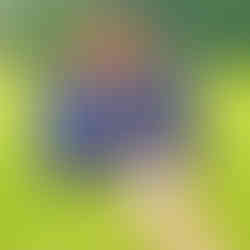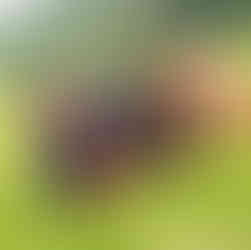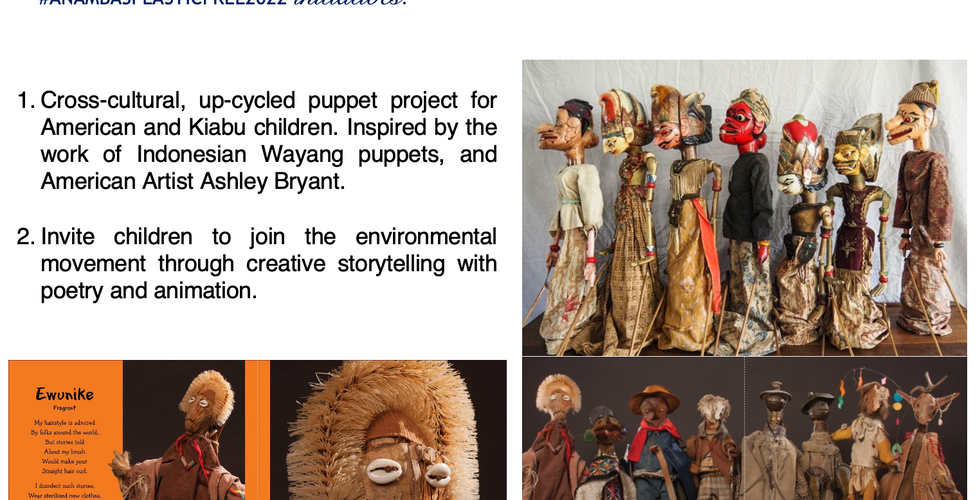Under the support of Bawah Anambas Foundation, I designed a up-cycling initiative to work collaboratively with an Indonesian community on Kiabu Island. While there, Sakti Nashuka joined the project, her knowledge of the ecology of the area, environmental issues, sensitivity to people and creativity was invaluable in the success and growth of this project.

Kiabu is a beautiful fishing village with a lush forest, turquoise clear ocean and very tight knit community.

There is artistry throughout the town, from brightly painted houses and boats, to old satellites repurposed as umbrellas.

As with most communities around the world, Kiabu faces issues with waste. Plastic fishing nets are found tangled in coral reefs. A common practice is burning waste, which can have detrimental health effects. In partnership with the Bawah Anambas Foundation, they hold frequent waste clean ups in town and in the ocean. They collect, measure and organize their recyclables and are currently working on building a recycling center to process their own waste and that of the surrounding Anambas Islands.

We identified common waste items and experimented with them to see how they could be used to create new products that could solve practical needs. After discussion with the Bawah Anambas Foundation, we identified that soft plastics may not be able to be processed by the new machines at the anticipated recycling center. I researched artists for inspiration and processes that could be used to manipulate these plastics. I created teaching visuals in Indonesian and English to aid in this learning.
In particular a group of women really ran with one of these processes. They worked together to create a line of reusable bags from single-use plastic bags by fusing them together with heat.
As we worked together, different people brought forth their different strengths. Ibu Lena was our skilled sewer who would come back each day with new improvements on the design of the bags. Ibu Rika was a prolific experimenter who worked independently to create a whole line of objects from a variety of recycled materials.
The Future of the Program
When the Indonesian government learned about this up-cycling initiative, they offered funding to expand the program to other islands the next summer. Besides for continuing to grow this project, Sakti and I had developed new projects that were focused on the empowering and connecting nature of art with ecological issues as can be seen in the slides below.
Unfortunately, the pandemic hit and we were unable to travel back out to facilitate these new projects. However, we were happy to hear that the workshop was extended to other islands!







































Comments